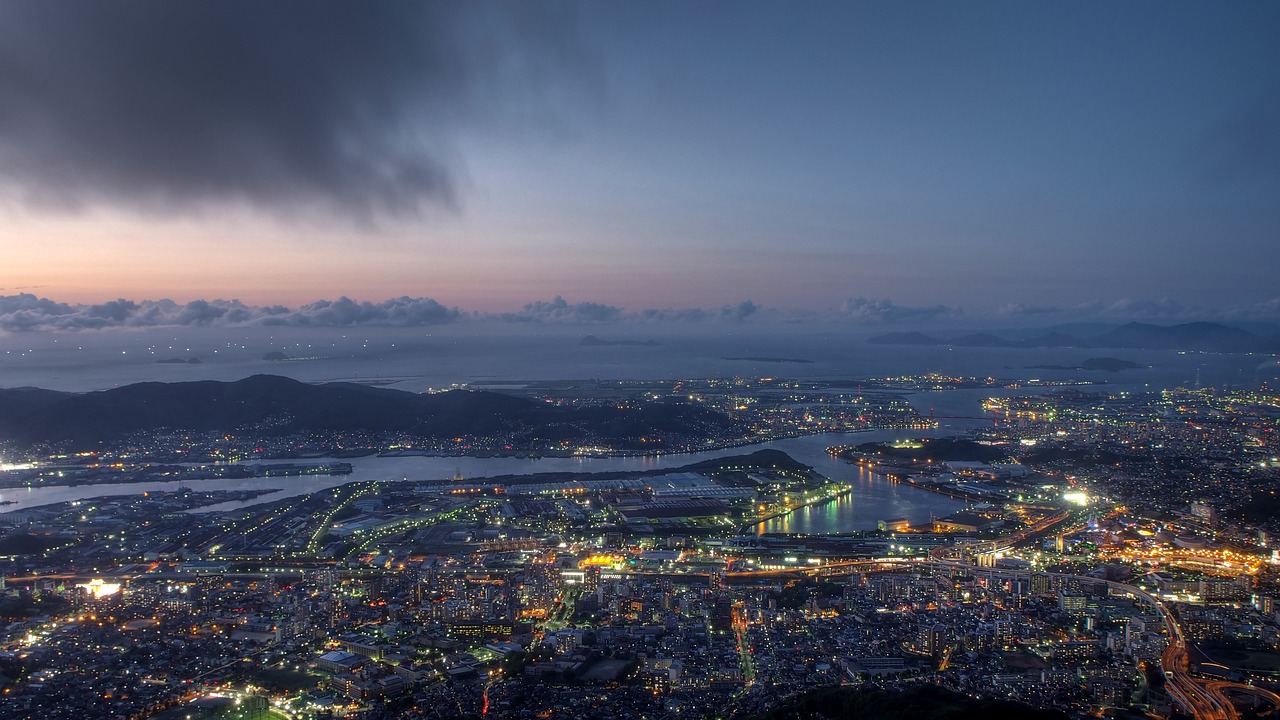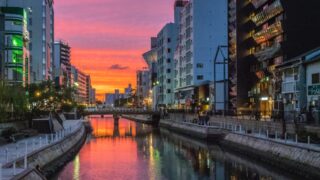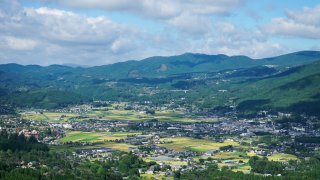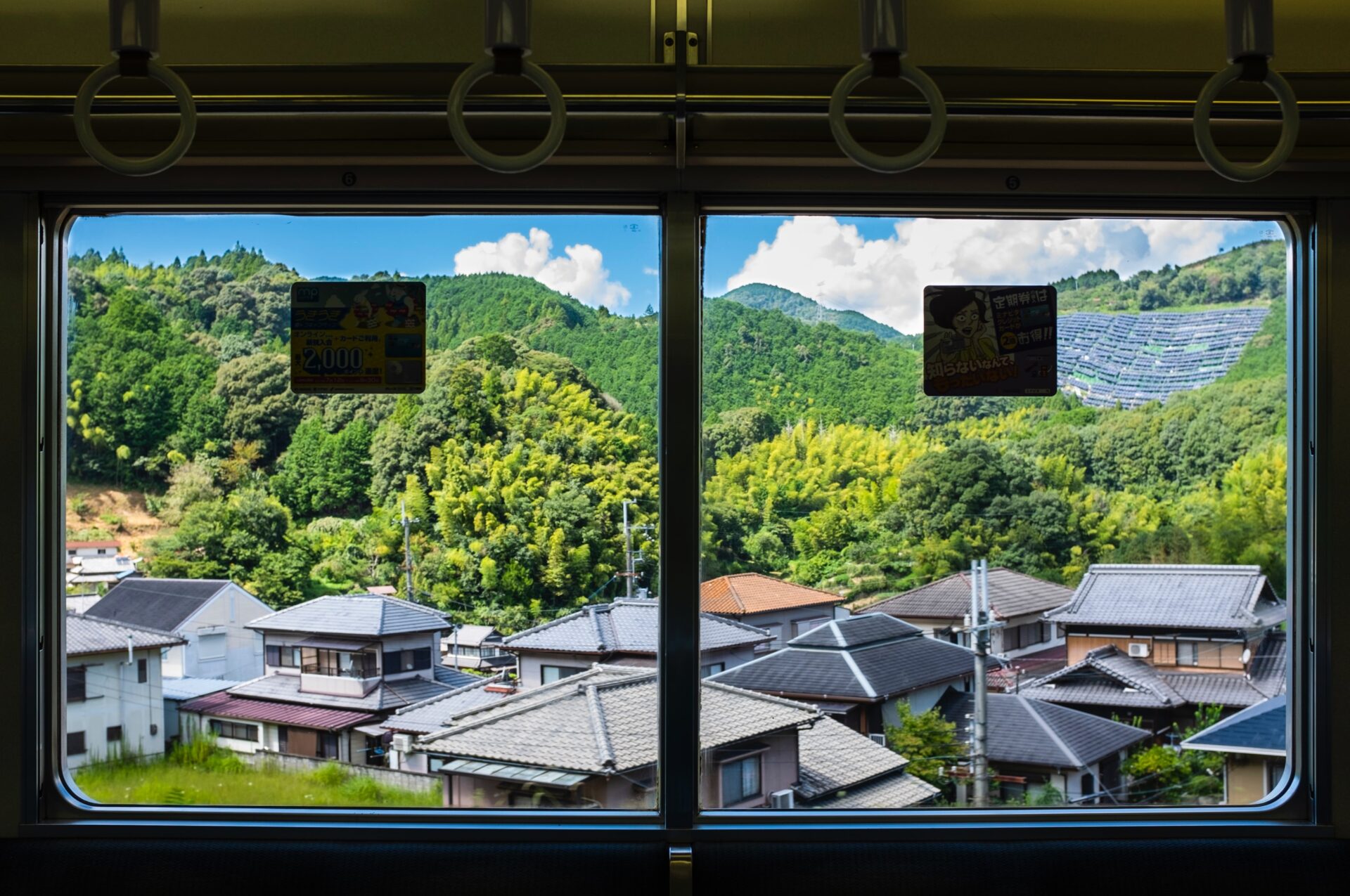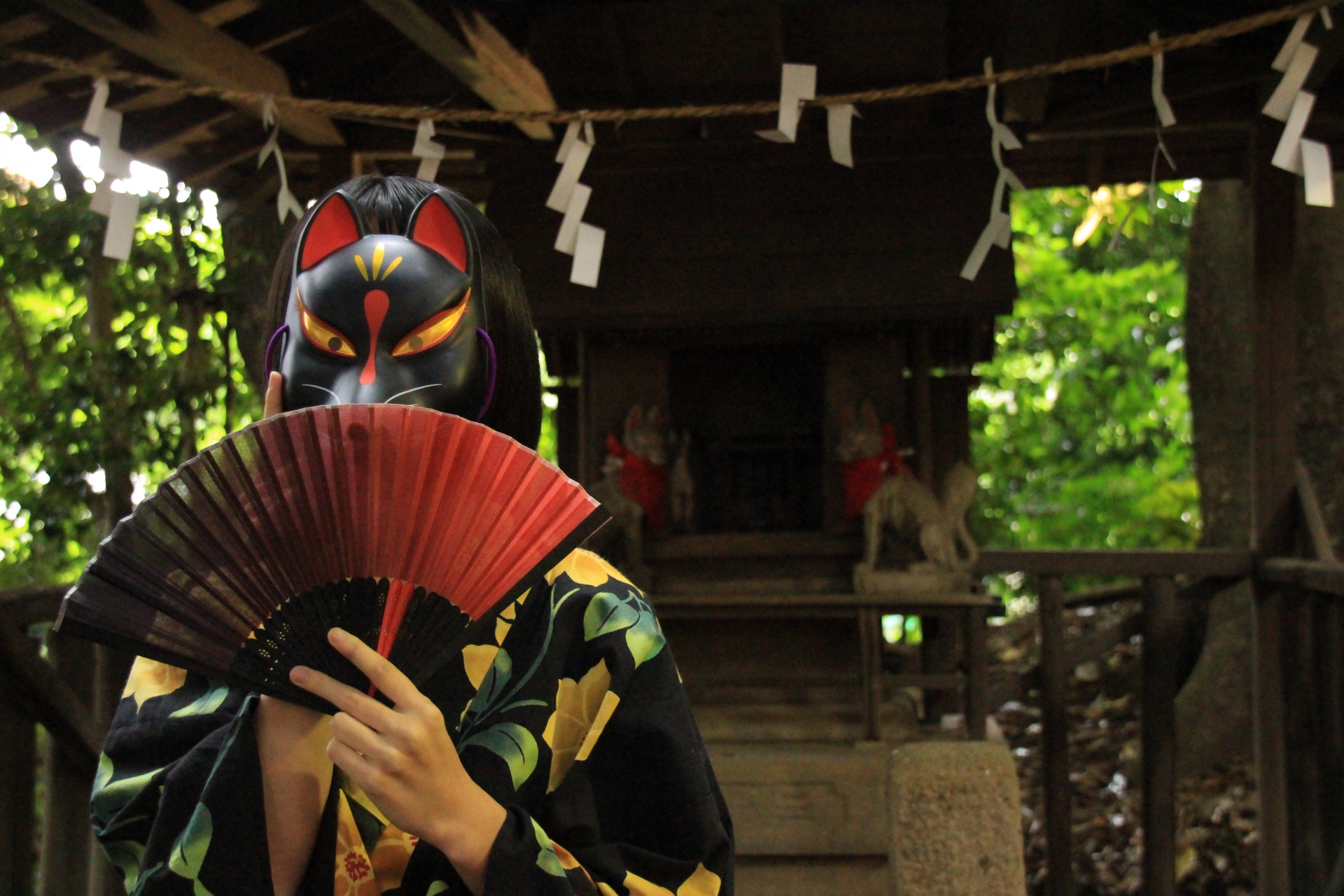
Stefanie Akkerman moved from the Netherlands to Japan in 2013 with her Japanese husband and son. She jumped into the niche of Dutch tour guiding in Tokyo and Kamakura in 2015 and occasionally writes articles about all the great sights and activities Japan has to offer. She loves (Japanese) food, and to work that all off she goes diving, snorkeling, cycling, or hiking.
This post may contain some affiliate links. When you click through and make a purchase we may receive some commission, at no extra costs to you.
While Honshu is considered Japan’s main island, the third largest island Kyushu also has plenty to offer to curious visitors. You will be treated to abundant nature with amazing sights such as the active volcano Mount Aso, Beppu Onsen, and the magical Takachiho Gorge – one of the most beautiful places in Japan! Besides amazing natural sights, the local cuisine boasting super fresh seafood and a large number of rich historical and cultural sites makes Kyushu an absolute must-visit. For many, the port of entry in Kyushu is Fukuoka City. A laid-back port city, Fukuoka City (also known as Hakata) packs enough sightseeing spots to fill up 2 days. The city is known for its lively night scene, many historical highlights and unique food culture. Let us introduce the 11 best things to do in Fukuoka City!
- 1. Visit Nanzoin Temple & Reclining Buddha
- 2. Enjoy the View from Fukuoka Tower
- 3. Pray at the Most Famous Shrine: Dazaifu Tenmangu Shrine
- 4. Witness a Dynamic Race at Hakata Gion Yamakasa Festival
- 5. Satisfy Your Stomach at Yatai (Food Stalls)
- 6. Enjoy Seasonal Flowers at Uminonakamichi Park
- 7. Stroll around Ohori Park
- 8. Check Out the First Zen Temple in Japan: Shofukuji Temple
- 9. Spend a Summer Day at Momochi Seaside Park
- 10. Go Shopping at Canal City Hakata
- 11.Cherry Blossom Viewing at Fukuoka Castle Ruins
- Japan Wonder Travel Tours
- Other articles you might enjoy
1. Visit Nanzoin Temple & Reclining Buddha
Our first spot is located just outside of the city in the surrounding mountains. About one hour by train from Fukuoka’s main station, you can find Nanzoin Temple (南蔵院) with a large bronze statue of a reclining Buddha. At 41 meters, this is actually the largest bronze statue in the world! While there are many Buddha statues in Japan, a reclining Buddha is quite rare to see in Japan, as they are most often seen in South-east Asia. Buddha statues in this pose represent Buddha at his time of death, when he entered Nirvana.
Nanzoin Temple is a large complex, that can be entered free of charge, featuring many smaller shrines that are built on the hillside. Besides the Buddha statue, you can see statues of the 7 Lucky Gods, an angry-looking Fudo-san, and hundreds of statues of Buddha’s disciples.
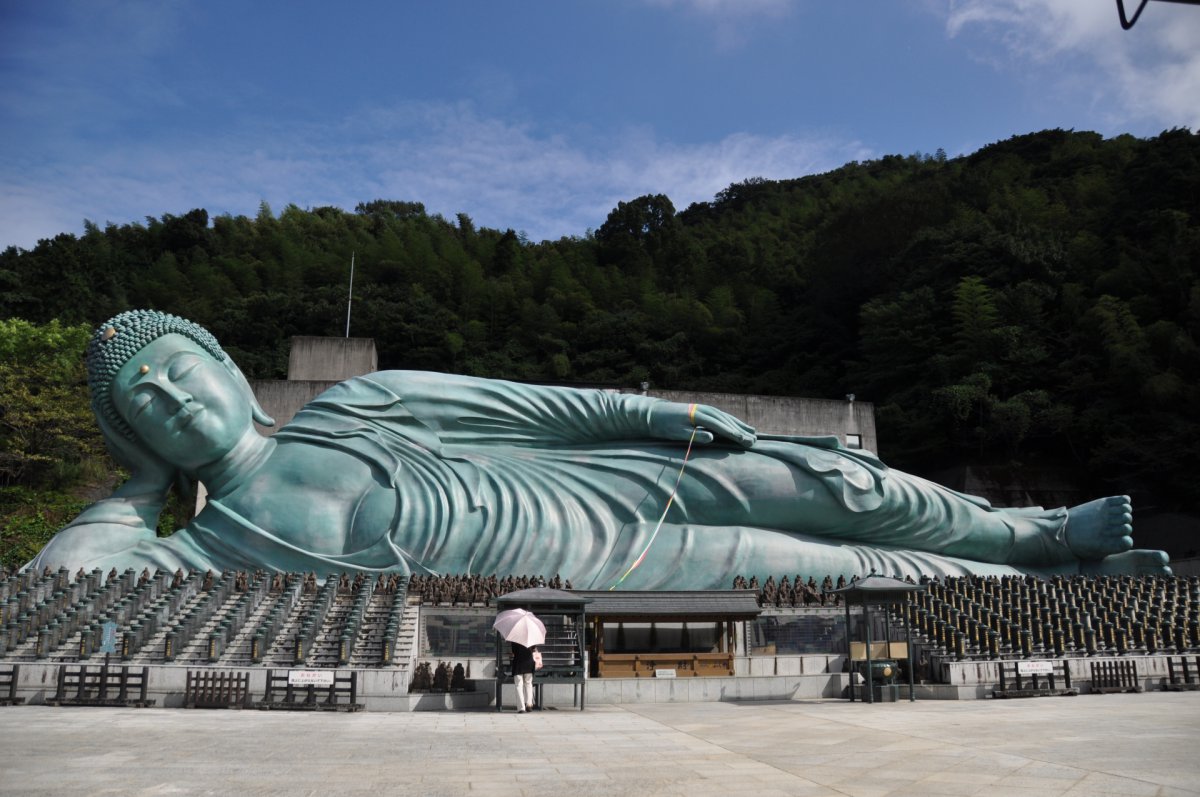
2. Enjoy the View from Fukuoka Tower
Who doesn’t like a lookout point in the sky? The iconic tower of Fukuoka is also its’ tallest tower at an height of 234m. From Fukuoka Tower’s observatory you can see the city and the nearby sea and mountains from 123m high. The observatory is 360 degrees, and there even is a cafe with amazing views. There are other forms of entertainment too such as a Lovers’ Sanctuary and SKY Gacha (plastic balls with a toy inside). The tower is nicknamed “Mirror Sail” because of 8,000 half-mirrors covering the tower, giving it the appearance of a skyscraper.
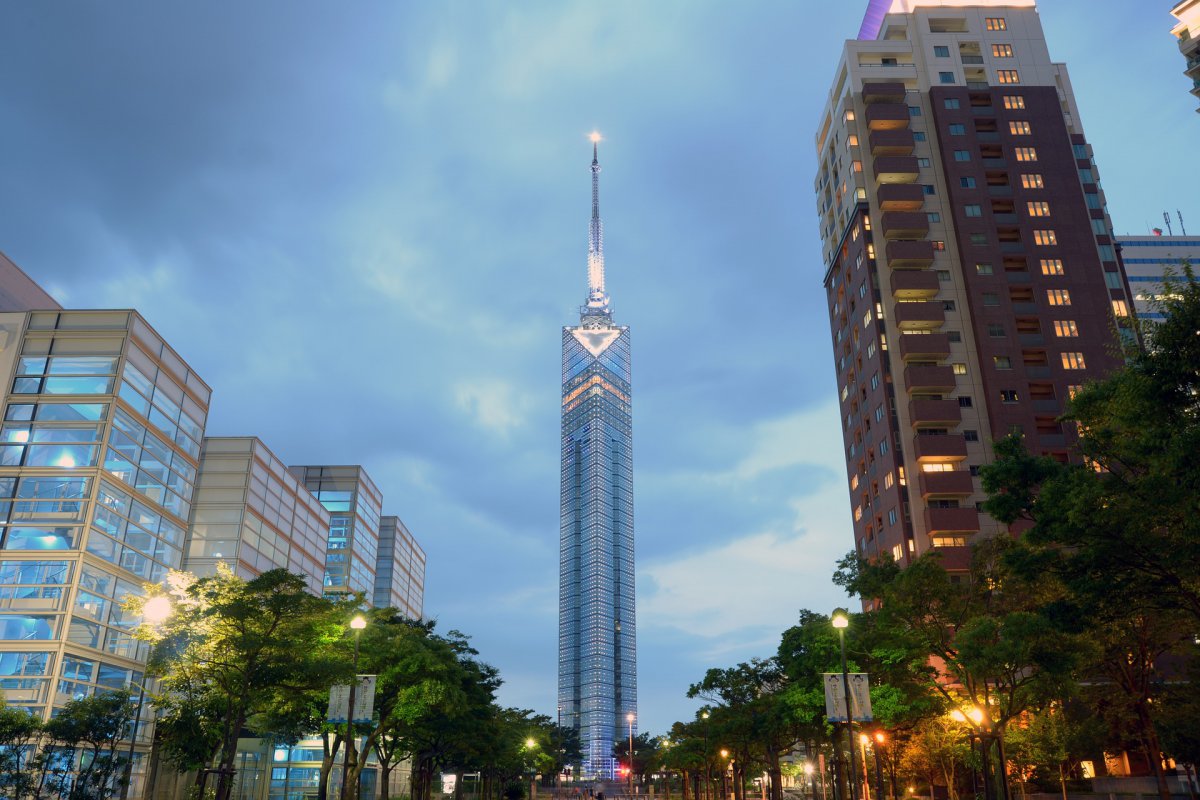
Fukuoka Tower
9.30am – 10pm (last admission 9.30pm)
Admission fee ¥800
3. Pray at the Most Famous Shrine: Dazaifu Tenmangu Shrine
In Japan, getting into a great university is the most important goal for many students. If they succeed, they will likely have a much easier life, so a lot depends on it. To help study efforts a little, it is very common to pray at a shrine that is dedicated to academic success. The Dazaifu Tenmangu Shrine (太宰府天満宮) is the best place in Fukuoka to do this, so you will see many students who come here for prayer and buying lucky amulets. The shrine is dedicated to Michizane, a very intelligent scholar and politician from the 9th century.
The shrine has a long approach which is lined by little stalls selling trinkets and snacks. The pond with two arched bridges is the most famous picture spot in the shrine. Also, don’t miss the plum tree next to the main hall which, according to legend, flew with Michizane to comfort him in his exile that happened towards the end of his life after making the dominant Fujiwara clan uncomfortable because of rivalry.
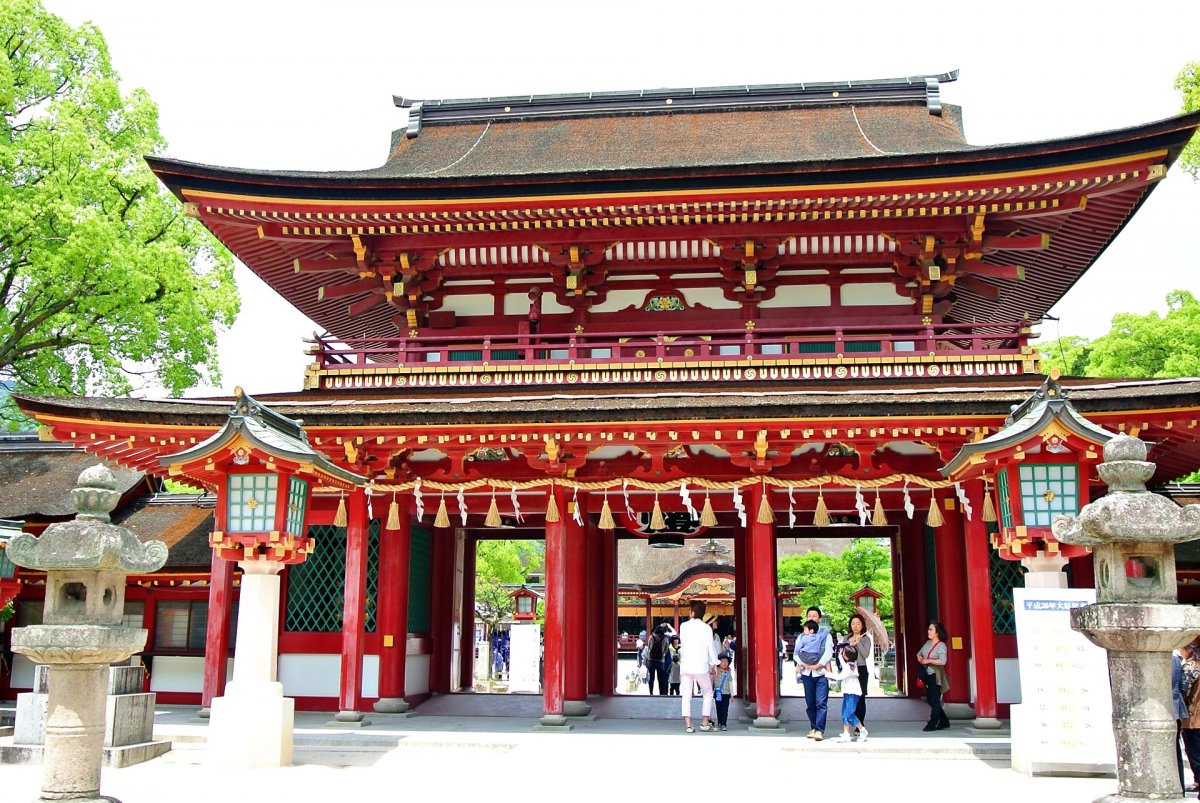
4. Witness a Dynamic Race at Hakata Gion Yamakasa Festival
Summer means matsuri, or festivals, in Japan. Fukuoka has one of the most riveting festivals in Japan; Hakata Gion Yamakasa Festival (博多祇園山笠), not to be mistaken for Kyoto’s Gion Festival. Held in the first 2 weeks of July, it culminates into a glorious race that starts at 5am on July 15. On the days leading up to the 5k race, teams already have to practice runs which are fun to watch. The teams that compete with each other are from different Fukuoka neighborhoods, and the floats they race with are beautifully made.
Surprisingly, it only takes around 30 minutes to complete the race for most teams, despite having to lift a very heavy float. The team effort and spirit they bring are pretty incredible!
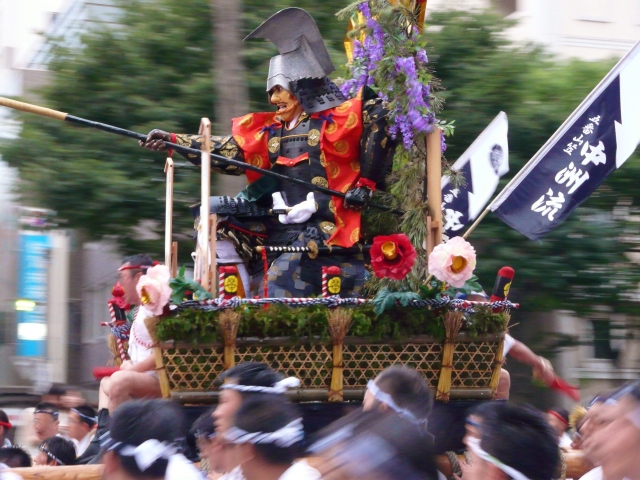
5. Satisfy Your Stomach at Yatai (Food Stalls)
What is the best place for street food in Japan? While some will argue that it must be Osaka, which is known as ‘Japan’s Kitchen’ for good reasons, Fukuoka is also a very good contender. The city’s mild climate makes it possible to eat outdoors comfortably most of the year, and Nakasu Island in a central area of the city, is the place to be when it comes to eating in yatai (屋台). The name yatai literally means “shop stand” and they basically are small open-air food stalls that only seat around 6-8 people at the same time.
With the convivial atmosphere, it is easy to enjoy conversation with fellow customers and the owner, and you can enjoy classic Japanese street food dishes such as yakitori, ramen noodles, and oden. The best time to go is on a weekday between 6pm and midnight. On a Friday or Saturday evening, there are often lines, and on Sunday many stalls will be closed. Please note that many stalls also close in the event of bad weather.
Also read: What to Eat in Fukuoka: 10 of Fukuoka’s Local Specialties
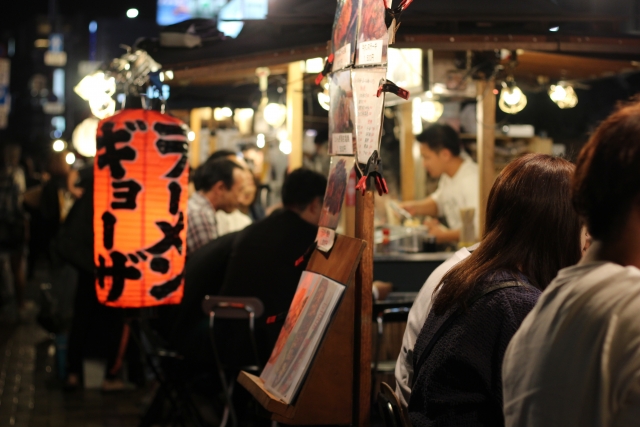
6. Enjoy Seasonal Flowers at Uminonakamichi Park
If you want to enjoy some natural surroundings in Fukuoka, Uminonakamichi Park (海の中道海浜公園) is a great place to do so. This is a part where the locals like to come to relax, so it tends to get crowded on weekend days with nice weather. If you go on a weekday, you can enjoy the park with fewer people around. All year there are beautiful blooming flowers to enjoy and Uminonakamichi Park is also a popular place for sakura viewing with over 2,000 sakura trees growing in the park!
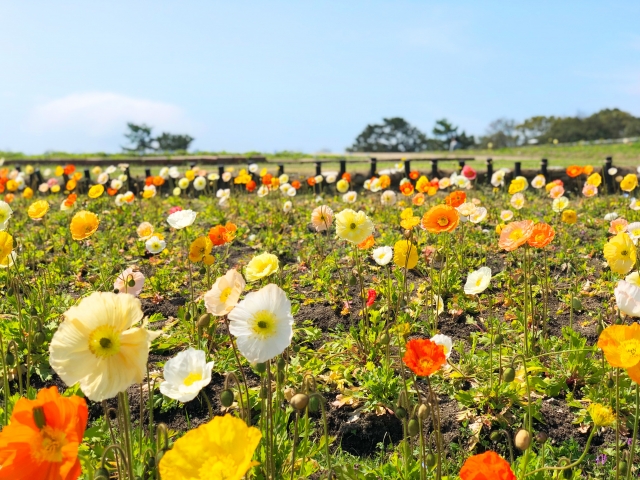
Besides watching the seasonal flowers, there is a lot to do here! You can rent bicycles to cycle their 12km course and go from one attraction to the next without breaking a sweat. While you can’t swim in the sea in the park, there are several splash pools where you can cool down during warm weather. You can try your hands on woodworking with timber found in the park for free, and there is a small zoo with animals such as capybaras and kangaroos. There is mini golf, and if you get hungry there are several cafes where you can have a nice lunch. Also, look out for their events!
Uminonakamichi Park
9.30am – 5.30pm (until 5pm from November to February)
Admission fee ¥450 + some attractions charge separate fees
7. Stroll around Ohori Park
While Uminonakamichi Park is great for families and those looking to get a bit active, Ohori Park (大濠公園) is more meant for a leisurely stroll. Built in the early 20th century in the place that was one of the moats of Fukuoka Castle in the feudal era, the park is rich in water. The main area is concentrated around a large pond. Designed as a classical Chinese garden, you can see 3 small man-made islands and 4 bridges that connect them. A quintessential East Asian sight!
Nearby the park there is the Ohori Park Japanese Garden, where you can see a dry landscape garden and tea houses for a small fee of ¥200. If you are interested in art you might want to make a stop at the Fukuoka Art Museum which houses centuries-old Buddhist statues and modern art alike.
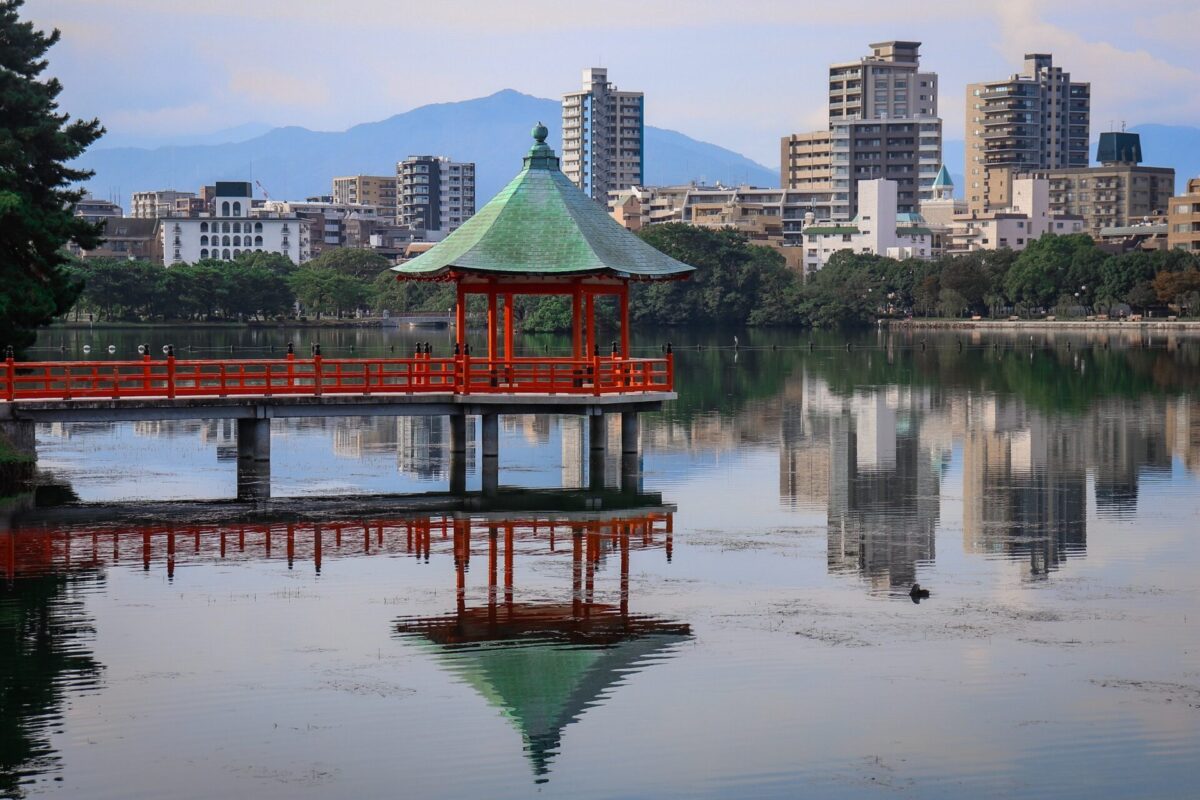
8. Check Out the First Zen Temple in Japan: Shofukuji Temple
Are you interested in Buddhism? The Shofukuji Temple (聖福寺) near Hakata Station is actually the very first Zen temple in Japan. In 1195, priest Eisai, who was responsible for bringing tea culture to Japan, introduced Zen Buddhism from China to Japan and founded the Shofukuji Temple. It is said that he also brought some tea plants from China and planted them on and around the grounds of the Shofukuji. The temple’s buildings are actually still in use, so you can’t enter the buildings but it is very nice to just walk around the precinct and feel the quiet atmosphere.
Of the beautiful gates you can find on the grounds, the Sanmon Gate is the most outstanding. Also make sure to check out the Butsuden Hall, which holds 3 statues of Buddha and has a painting on the ceiling of a dragon, which is considered a heavenly and benevolent creature in Japan.
9. Spend a Summer Day at Momochi Seaside Park
Fukuoka is not famous for being a beach destination, but Momochi Seaside Park (シーサイドももち) is an exception. With a broad sandy beach area and clear water, the long artificial beach is perfect for a day of lazing around at the beach and cooling off in the sea. There are also many beachside restaurants, so it is a perfect spot for some seaside dining in the open air.
Because the area was developed quite recently in the late 20th century, the streets are convenient and broad, and there are many parks around the neighborhood. Fukuoka’s cityscape also features nicely in the background.
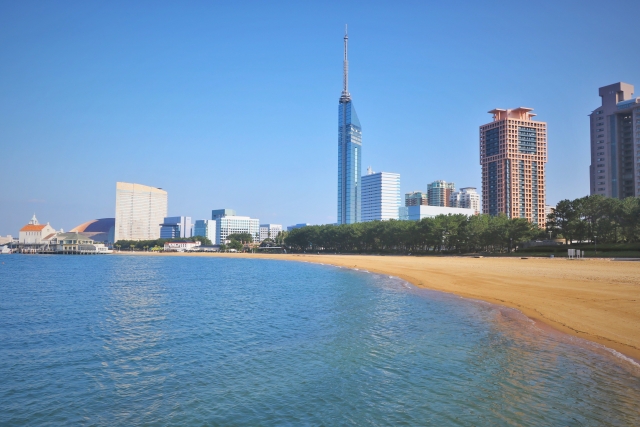
10. Go Shopping at Canal City Hakata
Is it a rainy day, or do you just want to go to one place that has many shops and entertainment options? Then Canal City Hakata (キャナルシティ博多) is the place to go. In a beautifully designed modern complex featuring an actual canal, a fountain, and public art, you will find all kinds of shops, restaurants, cafes, a cinema, a theater, an arcade, and even a mystery game. They also hold indoor (seasonal) events and performances regularly.
The kind of shops you can find here is extremely varied, they range from international and local brand fashion to smaller boutiques. You can also find subculture stores such as the Evangelion store, the Ultraman store, and Donguri Kyouwakoku, Studio Ghibli’s official shop. Even Disney is represented in Canal City Hakata.
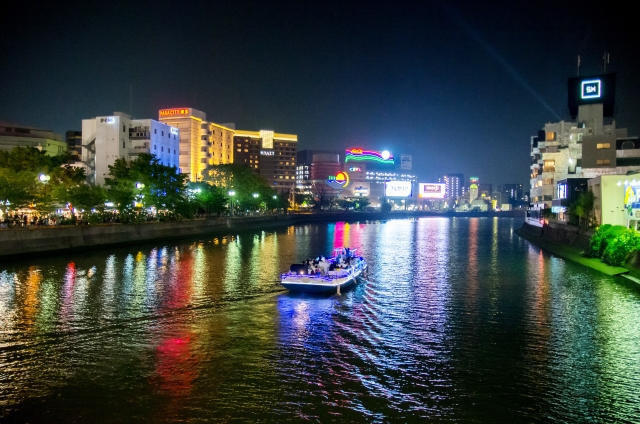
11.Cherry Blossom Viewing at Fukuoka Castle Ruins
Don’t expect to see anything resembling a castle when you visit the Fukuoka Castle Ruins in Maizuru Park. As the name already suggests, the castle that was once the pride of Fukuoka and Kyushu is no more. When the feudal time ended, the castle was demolished in order to erase symbols of the era that just ended. There are a few remnants that remind of the past such as the moat, some walls, turrets, and a few smaller reconstructed buildings.
So is it still worth a visit? We answer that question with a resounding ‘yes’, because it is a lovely place for a beautiful walk. There are a few walking trails and viewpoints, and if you are here during the cherry blossom season the Fukuoka Castle Ruins is one of the best spots in the city to enjoy the pink sakura flowers. The castle ruins are always accessible and free to enter.
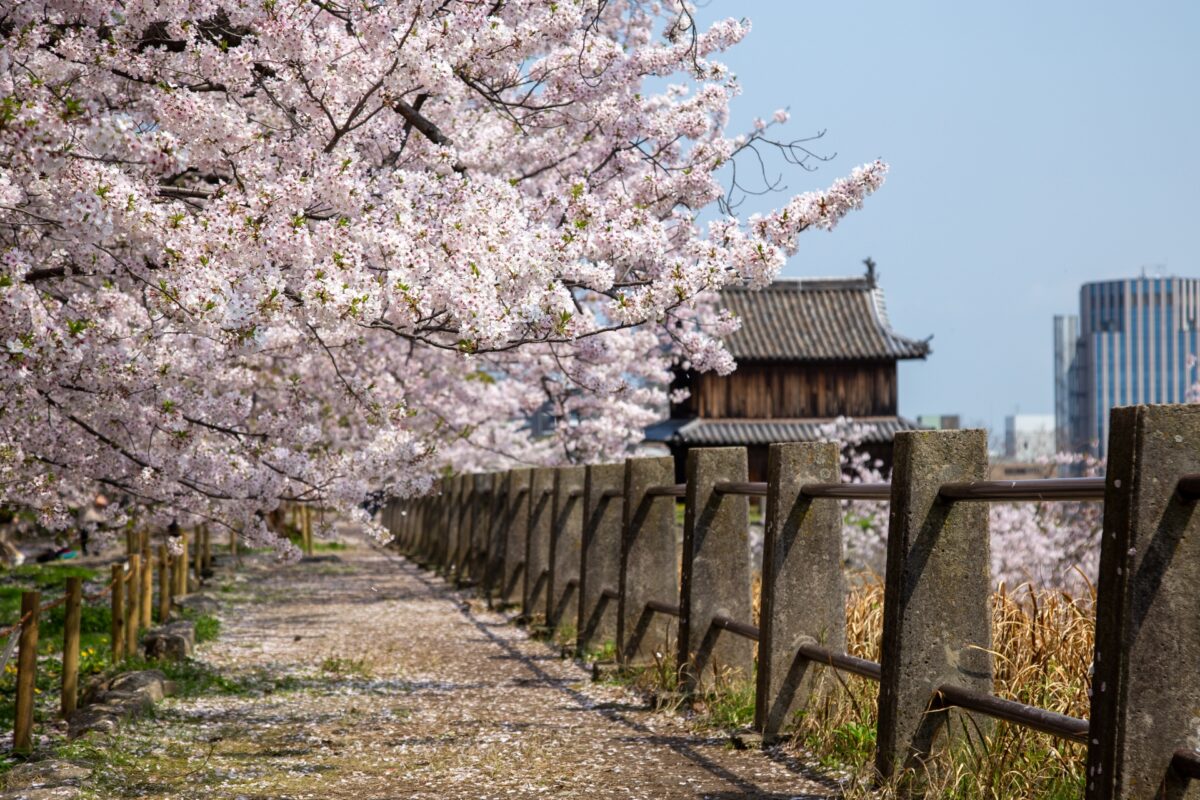
Japan Wonder Travel Tours
As you can see, there are plenty of ways to enjoy yourself in the port city of Fukuoka! If you want to discover the city with a private guide and hear all the background stories of this city full of history and culture, check out our Fukuoka 1-day Highlight Private Walking Tour.

All of our tours can be customized according to your wishes and availability. Please contact us for any specific requests or if you need help planning your trip to Japan, we’d be more than happy to help!
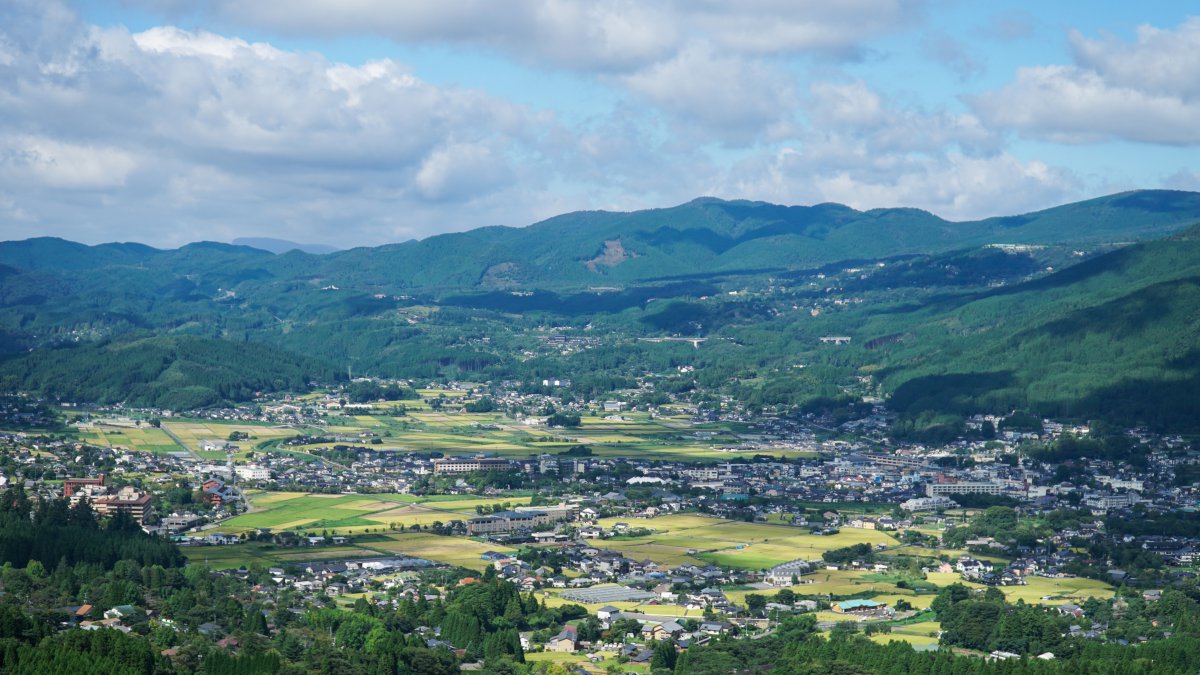
Fukuoka is located on the western side of Japan and is the entrance gate of Kyushu island. The city, located in its namesake prefecture, is famous for its delicious local food (the most popular one being its ramen) and makes for a great weekend trip. This area has a long and rich history and being a port city, the local culture and cuisine have been influenced by many other countries. In Fukuoka, you can feel the friendly atmosphere, the warm weather, and the traditional culture!
Recommended article: The Best Hotels in Fukuoka
Follow us on Instagram, Facebook, Twitter, and TikTok for more travel inspiration. Or tag us to get featured!
Happy traveling!
